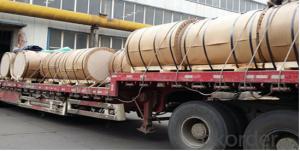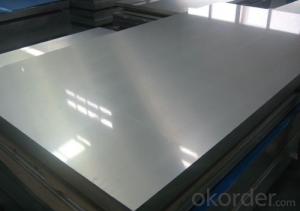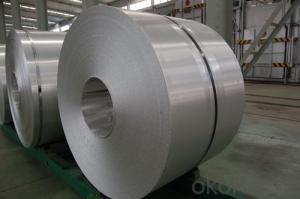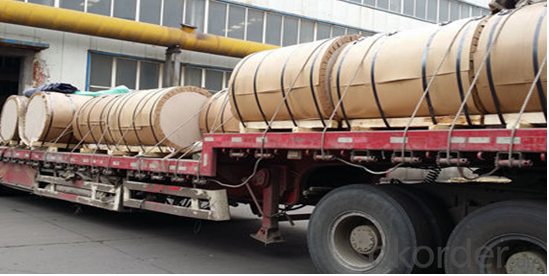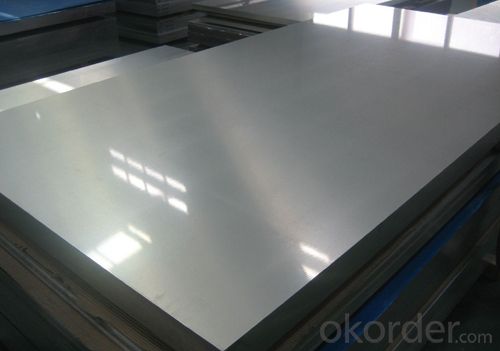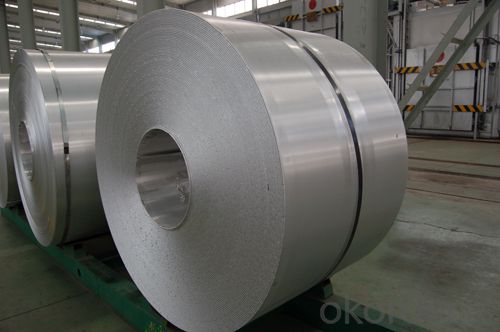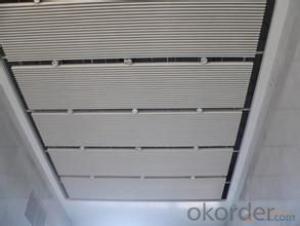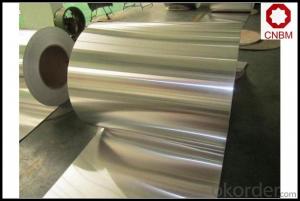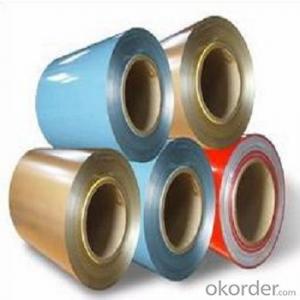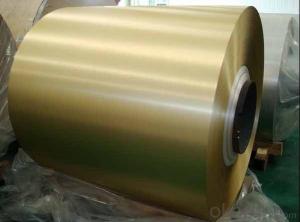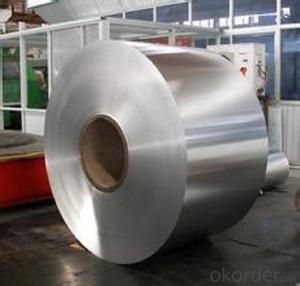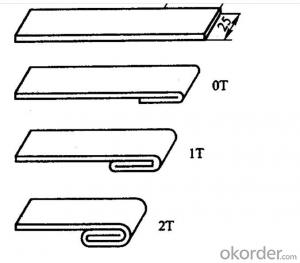Aluminum Roofing Coil Prices for Different Applications in Different Alloys
- Loading Port:
- Shanghai
- Payment Terms:
- TT OR LC
- Min Order Qty:
- 20 m.t
- Supply Capability:
- 10000 m.t/month
OKorder Service Pledge
OKorder Financial Service
You Might Also Like
Specification
1. Specification of Aluminum
1) Alloy | 1050, 1060,1100, 3003 3004 3105 3005 5005 5052 etc |
2) Temper | O/H12/H14/H1/H18/H32/H34/H36/H38//H111/H112/H116/H321/T6/T651/T3/T351 etc |
3) Thickness | 0.1mm to 6mm |
4) Width | 20mm to 3300mm |
5) Coil weight | 100kgs to 6 tons depends on actual requirement |
6) Core material | Aluminum alloy |
7) Coil Inner diameter | 76mm, 152mm,or as required |
2. Application of Aluminum
(1).Interior: wall cladding, ceilings, bathrooms, kitchens and balconies, shutters, doors...
(2).Exterior: renovations...
(3).Advertisement: display , signboards, fascia, shop fronts...
3. Feature of Aluminum
In 1954, there were 75 registered aluminum alloys. Today, there are more than 530 registered active compositions and that number continues to grow. That underscores how versatile and ubiquitous aluminum has become in our modern world. So what are aluminum alloys and why are they important?
4. Certificate:
SGS and ROHS(if client request, paid by client), MTC(plant provided), Certificate of Origin(FORM A, FORM E, CO), Bureau Veritas and SGS (if client request, paid by client), CIQS certificate
5. Image of Aluminum
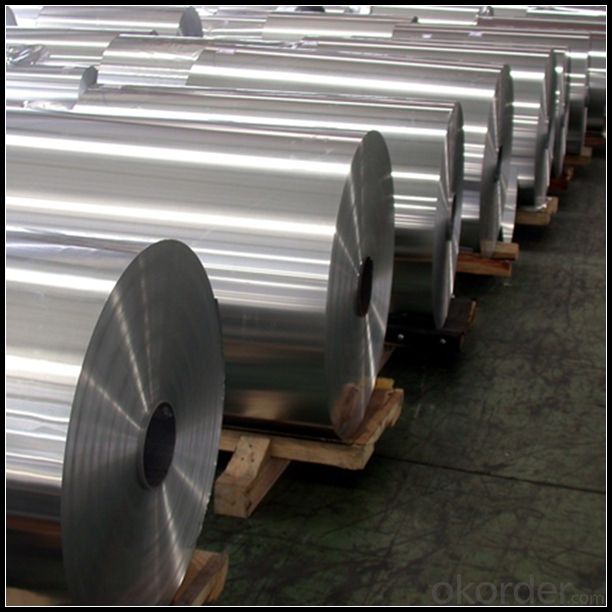
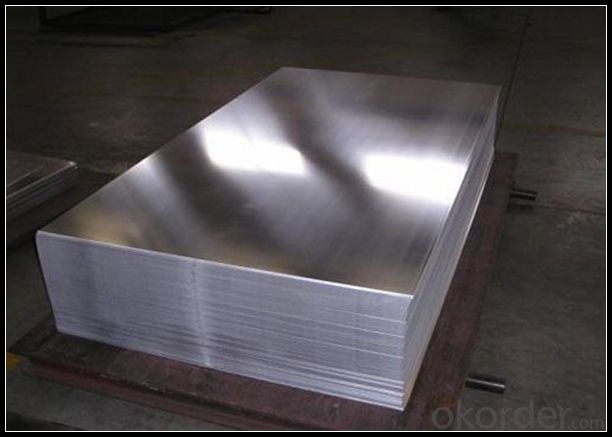
6. FAQ
Q: What is the produce prase? | ||||
A: Normally it would be 40days after received your deposit. | ||||
Q: Can you provide free samples? | ||||
A: Yes, free samples will be sent to you on freight at destination. | ||||
Q: Can I get your latest catalogue? | ||||
A: Yes, it will be sent to you in no time. | ||||
Q: What is the MOQ? | ||||
A: 3 tons | ||||
Q: What are your payment terms? | ||||
A: We accept L/C, D/A, D/P, T/T, West Union,etc. |
- Q: What is the cost-effectiveness of using aluminum coils in the long run?
- The use of aluminum coils in the long term can yield significant cost-effectiveness. Despite the initial higher cost compared to materials like copper, aluminum coils offer long-term advantages that make them a wise choice. To begin with, aluminum coils exhibit exceptional resistance to corrosion, which means they are unlikely to deteriorate over time. Consequently, they have a longer lifespan and require less maintenance, resulting in reduced costs. Additionally, aluminum coils possess high heat transfer efficiency, enhancing energy efficiency and lowering energy consumption. Moreover, aluminum is a lightweight material, making it more economical and easier to transport and install compared to heavier alternatives. This leads to reduced labor costs during installation or replacement. Another factor that enhances the cost-effectiveness of aluminum coils is their recyclability. Aluminum is highly recyclable, and the scrap value of aluminum coils can offset the initial investment. Furthermore, the use of recyclable materials aligns with sustainability objectives and can contribute to a positive brand image and reputation. In summary, despite the higher upfront cost, aluminum coils offer long-term benefits such as corrosion resistance, energy efficiency, recyclability, and reduced maintenance and labor costs. Consequently, they are a cost-effective choice in the long run.
- Q: What is the maximum width of aluminum coils?
- The maximum width of aluminum coils can vary depending on various factors such as the manufacturing process, the specific grade and type of aluminum, and the capabilities of the equipment being used. However, in general, aluminum coils can have a maximum width ranging from a few inches to several feet. Industrial coil lines can typically handle widths up to 72 inches, while specialized equipment may be able to accommodate even wider coils. It is important to consult with the manufacturer or supplier to determine the specific maximum width available for a particular application.
- Q: Is it possible to construct a tent or shelter using aluminum coils?
- <p>Yes, you can use aluminum coils to make a tent or shelter. Aluminum is lightweight, durable, and resistant to corrosion, making it a good material for temporary structures. You can use aluminum coil sheets to create the frame and support structure of the tent, ensuring it's strong and stable. However, you'll need to add a waterproof and insulating layer, such as canvas or tarpaulin, to protect against the elements. Remember to consider the weight, wind resistance, and ease of assembly when designing your shelter.</p>
- Q: What is the balanced chemical equation for aluminum and cobalt?That is all the information that the question gives. If you could help me out, I would really, really appreciate it.
- That's pretty sparse. Perhaps the question is referring to a single replacement reaction. Aluminum is above cobalt in the activity series, which allows us to predict that aluminum metal will reduce cobalt ions, while aluminum is oxidized. This occurs as long as there is an ion present which will react with the aluminum oxide layer on the surface of aluminum. This passivating Al2O3 layer keeps aluminum metal from reacting. The presence of chloride ions will break down the passivating layer allowing the aluminum metal below to react. Al2O3(s) + 6H+ + 8Cl- -- 2[AlCl4]- + 3H2O(l) 2Al(s) + 3Co2+ -- 2Al3+ + 3Co(s)
- Q: Why does it take less energy to get aluminum metal from used cans than to get it directly from the ore?
- in order to extract the raw aluminum, you have to heat everything and melt it first, then remove the stuff that precipitates out as it cools or forms via chemical reaction with catalysts you introduce. With aluminum cans, you don't have to raise the temperature much above the melting point of aluminum, since it's already the substance in the can with the highest melting point. With aluminum ore, there can be anything in the ore with pretty much any melting point. In particular, if the ore contains an alloy of aluminum and a metal with a higher melting point than aluminum, then rest assured, you will have to raise the temperature of the ore above the melting point of aluminum in order to melt that alloy, In any case, because the maximum required temperature of the smelter needed to melt used aluminum cans is necessarily lower than the maximum temperature required to work with the ore, less energy is required to get aluminum from used cans than from ore.
- Q: What are the different coil annealing options available for aluminum coils?
- There are several coil annealing options available for aluminum coils, including batch annealing, continuous annealing, and stress relief annealing. Batch annealing involves heating the coils in a controlled atmosphere furnace and then allowing them to cool slowly. Continuous annealing, on the other hand, involves passing the coils through a series of induction or gas-fired heating zones with controlled cooling. Stress relief annealing is a process used to relieve internal stresses in the coils, typically performed at a lower temperature for a longer duration.
- Q: Can aluminum coils be used in the production of aluminum composite roofs?
- Yes, aluminum coils can be used in the production of aluminum composite roofs. Aluminum coils are commonly used in the manufacturing process of aluminum composite roofs due to their durability, lightweight nature, and ability to resist corrosion. The coils can be easily formed and shaped into the desired profile for the roof, ensuring a seamless and aesthetically pleasing finish. Additionally, aluminum offers excellent thermal and sound insulation properties, making it an ideal choice for roofing applications. Its high strength-to-weight ratio also contributes to the overall structural integrity of the roof. Overall, using aluminum coils in the production of aluminum composite roofs provides a reliable and long-lasting roofing solution.
- Q: A certain ionic compound is made entirely of aluminum and oxygenWhat is the formula for this compound?
- Aluminum Oxide Al2O3
- Q: Are there any limitations on the length of aluminum coils?
- There are indeed limitations on the length of aluminum coils. While aluminum coils can be produced in various lengths, they are typically limited by practical factors such as transportation, handling, and manufacturing capabilities. Transportation is one of the major limitations as longer coils may become difficult to move efficiently. The size and weight of longer coils can pose challenges for loading and unloading, as well as shipping and logistics. Additionally, longer coils may require specialized equipment for transportation, which can add to the overall cost and complexity. Handling is another limitation, as longer coils can be harder to maneuver and manipulate during various stages of production. They may require larger and more robust machinery to process, which may not be available or feasible in all manufacturing facilities. Furthermore, manufacturing capabilities can impose restrictions on the length of aluminum coils. The equipment used to produce coils may have certain limitations in terms of size and capacity. Coil processing lines and machinery may have maximum lengths they can handle, and exceeding these limits may not be possible or economically viable. In summary, while there is no specific universal limit on the length of aluminum coils, logistical, handling, and manufacturing constraints can impose practical limitations. The specific length of aluminum coils would depend on various factors including transportation, handling capabilities, and the manufacturing processes involved.
- Q: Can aluminum coils be used for electrical connectors?
- Yes, aluminum coils can be used for electrical connectors. Aluminum is a commonly used material for electrical connectors due to its excellent electrical conductivity, relatively low cost, and lightweight properties. It is widely used in various electrical applications, including power transmission and distribution systems, electrical motors, and transformers. However, it is important to ensure proper insulation and protection of the aluminum coils to prevent corrosion and ensure long-term reliability of the electrical connections.
Send your message to us
Aluminum Roofing Coil Prices for Different Applications in Different Alloys
- Loading Port:
- Shanghai
- Payment Terms:
- TT OR LC
- Min Order Qty:
- 20 m.t
- Supply Capability:
- 10000 m.t/month
OKorder Service Pledge
OKorder Financial Service
Similar products
Hot products
Hot Searches
Related keywords
